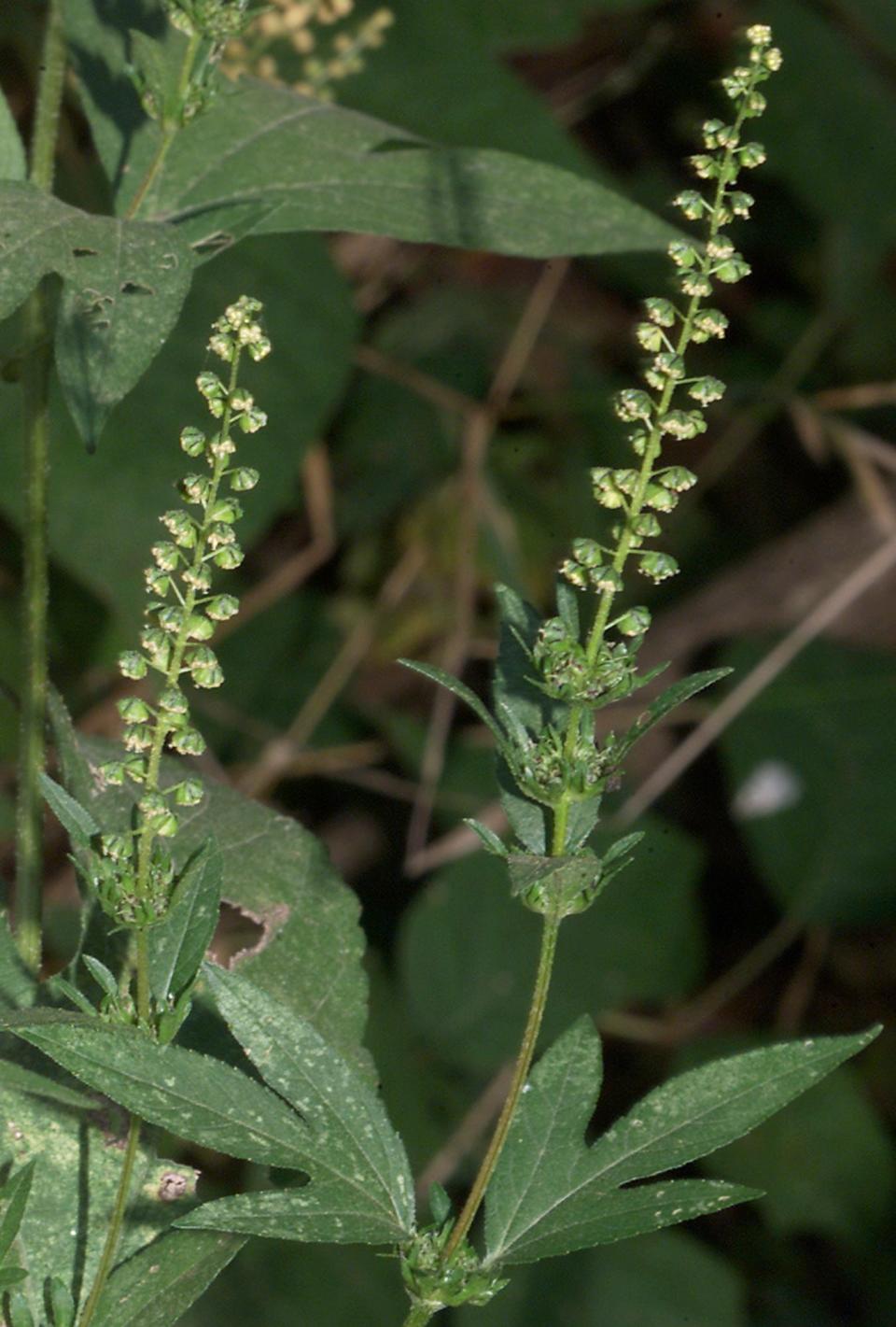Achoo! Fall allergy season arrives in Northeast Ohio
NORTH CANTON – Eli James is feeling the effects of fall allergies.
The North Canton native gets watery eyes and an itchy throat when the seasons start to change, especially amid the transition from summer to fall. And the pollen makes his asthma flare up, too.
"I've definitely noticed (my allergies) more this year," he said.
He's not alone. Fall allergy season is in full force in Northeast Ohio, and Stark County residents are experiencing a range of symptoms.
AccuWeather's 2022 fall allergy forecast shows that Ohio will likely see high levels of pollen this fall and that it could last until late October. Cleveland Clinic Akron General Allergist Dr. Bela Faltay said weather forecasters are expecting to see intermittent turbulent weather this year, which could trigger people's allergies.
Ragweed is the source of most fall pollen allergies
Faltay said ragweed is the main culprit of fall allergies. The plant is found primarily in the eastern and midwestern states, and each one can produce up to one billion pollen grains, according to the Asthma and Allergy Foundation of America.
"Pretty much in mid-August, 90% of the pollen to 95% is made up of ragweed," Faltay said. "And that will continue and peaks usually right around Labor Day, but it will continue until the first hard frost or until the end of September."
Weather conditions play a significant part in the length and severity of fall allergy season.
Ragweed thrives in warm, wet environments. That means the longer temperatures stay high, the longer people will be affected by seasonal allergies.
But allergies will stick around even after temperatures start to plummet. Faltay said mold becomes a bigger problem after ragweed season ends. Mold gets in the air when farmers harvest crops, and piles of fallen leaves often become breeding grounds for mold.
Autumn also sees a surge of dust mites indoors as households turn off their air conditioners. Faltay said dust mites prefer humid environments because they get water from water vapor.
"The three of those (allergens) don't play well together," he said. "One will kind of prime you for the other."

Is it seasonal allergies, viral infection or COVID?
Symptoms like sneezing, watery eyes and drainage are typically associated with seasonal allergies, but they can also be indicators of a viral infection.
Faltay said allergy symptoms are usually consistent from year-to-year.
"If you're someone who suffers from fall allergies, and it's timed out about the same as last year, that's not unusual ... if it's a new timeframe or you have other worrisome factors like loss of sense of smell then you have to worry about other infections," he said.
If an individual is experiencing a fever or muscle aches in addition to the common allergy symptoms, it could mean they have an infection.
How can I alleviate my allergy symptoms?
Folks with allergies can take a nasal steroid before the fall season begins to reduce symptoms ahead of time. Medications like antihistamines and azelastine can help minimize the effects of allergies.
Faltay said it's important to consider how medication will affect you before using it. Medications like Benadryl can cause drowsiness, he said, and lead to fall risks for seniors.
"We are obviously always very worried about people using them and performing functions like driving," he said.
How are Stark County residents doing this year?
On a recent Friday morning at Price Park in North Canton, several Stark County residents described a mix of allergy experiences, ranging from mild to severe.
Some, like Spring Schumacher and her 3-year-old daughter, Gemma, have noticed their allergies acting up more than normal this year, but their symptoms are still mild.
Schumacher lives in Canton and said her allergies typically are worse in fall than spring. Her daughter's allergies, she said, have been a lot worse this fall compared to seasons past.
Meanwhile, North Canton resident Judy Forsythe and her friend, Sue Stansloski of Massillon, both said seasonal allergies haven't been much of a problem lately.
The women said they use products like Claritin and Flonase when their allergies act up, but they have been largely unaffected by them in recent years.
Reach Paige at (330) 580-8577 or pmbennett@gannett.com or on Twitter at @paigembenn.
This article originally appeared on The Repository: Fall allergy season: Expert shares what to expect in Northeast Ohio

